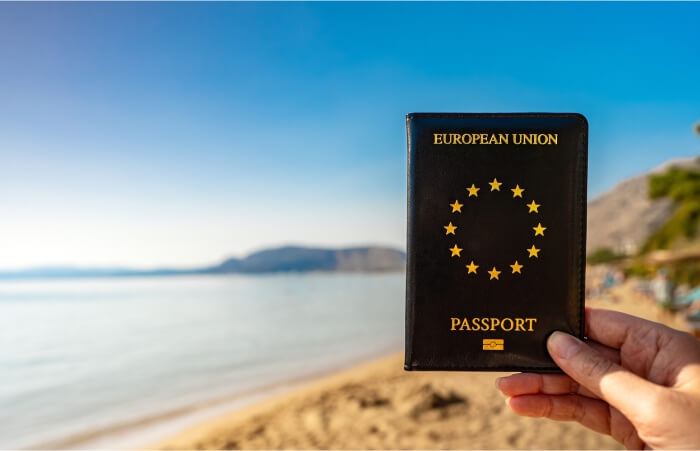Free Quote : +4 (031) 229 94 13
-
-
Email Address : [email protected]

Free Quote : +4 (031) 229 94 13
Email Address : [email protected]
Obtaining European citizenship is conducted in accordance with the official immigration programs, which differ between EU countries. The official websites of consulates provide information on how to get a passport and the requirements that applicants must comply with. Repatriation and naturalization are the most common ways of obtaining EU citizenship. Each immigration program has different conditions for gaining nationality, with various requirements for documents to be submitted and procedures to follow.

This article explains how to get citizenship in the EU through repatriation and naturalization. Based on an analysis of the immigration programs, a conclusion will be drawn on the easiest way to obtain a European passport.
Naturalization is an immigration program that involves a certain period of stay with a residence permit (RP) to get citizenship. It entails gradual integration into society. Once a person has reached a sufficient level, they can apply, and officials will decide whether they are eligible to obtain a passport.
The naturalization program is the most popular in the world, as any migrant can become a citizen through it. However, before relocation, it is important to check how this process works in each EU country.
There are two types of naturalization: standard and simplified. The first option involves obtaining citizenship within the longest time period and with the most restrictive conditions for migrants. In the case of simplified naturalization, the duration of residence on the state's territory is normally shorter.
Also, the requirements are more favorable to the applicant. The most common grounds for obtaining citizenship through simplified naturalization in the EU are:

The process of naturalization starts with legal entry into the territory of the chosen state and obtaining a residence permit. The grounds for applying for RP can vary, the five most common in the EU are listed here:
After a certain period of residence on the state's territory, which in the case of standard naturalization ranges from five to ten years, a person may apply for citizenship. The list of documents to be submitted depends on the country's legislation. In addition, migrants are subject to national language proficiency and other tests prescribed by law, and there are various naturalization requirements for the applicant. It is advisable to study these separately when considering the different immigration routes to citizenship. The most common requirements to get a passport through naturalization are:
Repatriation is an immigration program that enables individuals with territorial or national affiliation to an EU country to acquire citizenship. In other words, those who have a connection to the state from birth can get access to simplified procedures of passport registration.
Repatriation is the most popular option for persons wishing to get EU citizenship swiftly. The process usually takes 1-2 years and depends on the migrant's specific situation and how quickly the officials can reach a decision on accepting the new settler.

European citizenship can be obtained by repatriation, after applying to the competent authorities. This requires the acquisition of a visa and the personal submission of legally required documents. The list differs depending on the country, but the basic one is given here:
Processing an application for citizenship by repatriation can take a long time. Officials may need over a year to decide on a particular case. Once the application is accepted, the migrant takes the oath. On completion, they receive a citizenship certificate. The migrant is then eligible to receive a passport through repatriation and all the necessary documentation to live freely within the EU.
Compared to naturalization, repatriation is a better option for those interested in the fastest way to get EU citizenship. Instead of a long period of residence in a European state and registering an RP, migrants can apply and get a passport in 1-2 years. This allows any person in a short time to start enjoying all the privileges of having EU citizenship – to live, buy property and open bank accounts anywhere in Europe.
However, the repatriation process can be legally challenging. The legislation in certain countries can be confusing for migrants. Failure to comply with them leads to a range of complications, including penalties and deportation. If you are interested in how to get citizenship by repatriation in a particular EU country, it is best to contact immigration specialists for guidance, counselling and practical assistance during application.